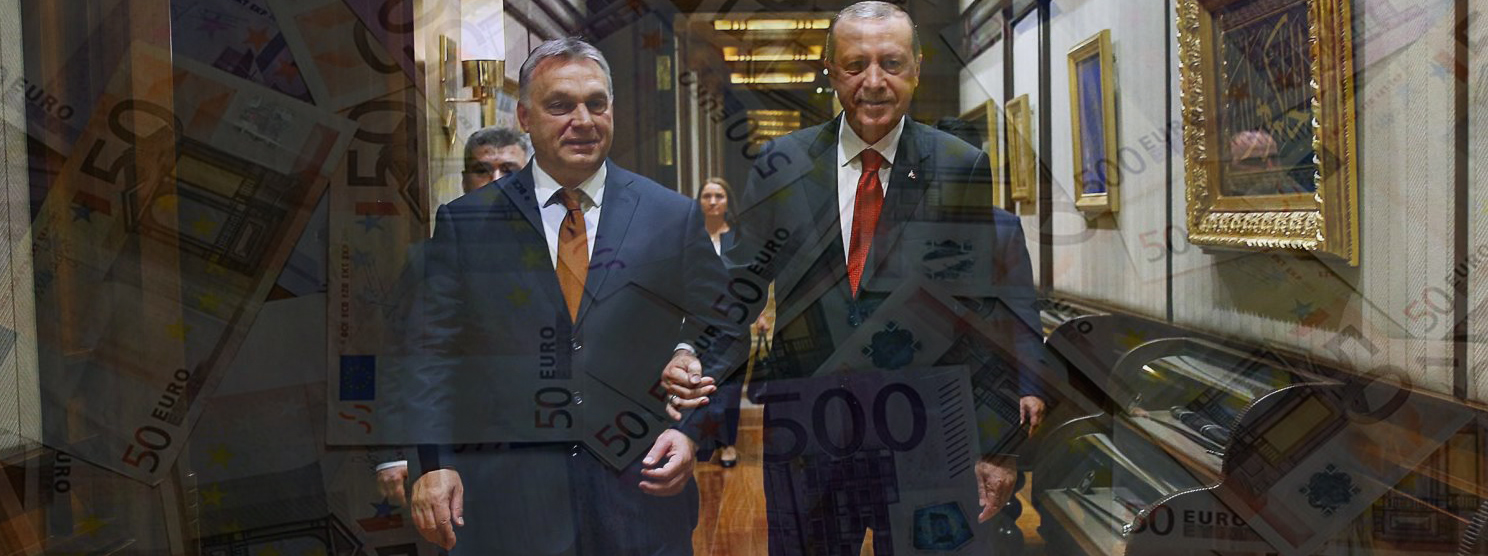Published: 5.11.2019
 The transliteration in the title refers to the famous letter of the Archbishop of Esztergom John of Merania and the conspiracy phrased therein with Dodonian ambiguity, but it also perfectly illustrates our foreign relations today. In other words, the government, and more specifically Viktor Orbán, has a rather peculiar foreign policy and approach towards certain geopolitical figures. While recently he had fiercely denounced anyone „blackmailing” his government on the refugee issue in the European Parliament (as a matter of fact, nothing of the sort happened), Recep Tayyip Erdogan’s rather lowdown (yet very real) blackmail did not prompt him to raise his voice, better yet, he downright supported it.
The transliteration in the title refers to the famous letter of the Archbishop of Esztergom John of Merania and the conspiracy phrased therein with Dodonian ambiguity, but it also perfectly illustrates our foreign relations today. In other words, the government, and more specifically Viktor Orbán, has a rather peculiar foreign policy and approach towards certain geopolitical figures. While recently he had fiercely denounced anyone „blackmailing” his government on the refugee issue in the European Parliament (as a matter of fact, nothing of the sort happened), Recep Tayyip Erdogan’s rather lowdown (yet very real) blackmail did not prompt him to raise his voice, better yet, he downright supported it.
President Erdogan, who is visiting Hungary in a few days, and has been here many times, has specifically threatened the European Union with the fact that if the European Community does not take over some of the burden of the Islamic country (that is, we will not pay them more for hosting the refugee masses) and if the EU keeps on criticizing them for example for the military aggression in Syria, they will not hesitate to open the gates of refugee camps and send thousands of asylum seekers to the West. This kind of threat goes far beyond political bluffs. And in the European community, only one country’s prime minister and government that stood up for President Erdogan: Viktor Orbán and Fidesz. It is difficult to explain why the head of government has such deep affection for leaders of states that have occupied us for shorter or longer periods of our history; but obviously there is an explanation. Russian President Vladimir Putin and Turkish Head of State Erdogan visit our country as often and in a fashion as if colonists of sorts were coming to view their European investment. Make no mistake, the problem that our government maintains an active relationship with important geopolitical players, but it is certainly peculiar, that confused obedience, and in the background, the economic and personal interdependencies that surround these ties.
Because, as Orbán and his pals made a serious mistake letting in (not only letting in, downright inviting with a bow) the Russian with its peculiar exemptions raising national security issues, the Turkish-Hungarian friendship is similarly intertwined with so many personal, basically family-run businesses. These will obviously benefit a certain circle of relatives and friends, while they put Hungary in chains that could cause serious damage as soon as in the short term.
One can see exactly what tangled relationships and private castle interweaving bond together businessmen near Erdogan and the highest circles of Fidesz. Orbán may keep saying that he “does not deal with business,” but somehow his strange and personal businesses overshadow every Eurasian move he makes. Moreover, the image of the self-confident freedom fighter he projects is just as fake as the above-quoted sentence from the letter from Archbishop John of Merania.
Orbán can prove the opposite if, in a few days’ time, when President Erdogan visits us again, he publicly refuses the Turkish Head of State’s blackmail the European Union and distances himself from the military aggression in Syria. But I have an odd feeling that all we shall see again will be the confused attempts at keeping his necktie in order, the shy smile and the peacock dance that by today tends more to resemble the awkward toddling of a duck.
dr. István Ujhelyi
Member of the European Parliament
3 November, 2019